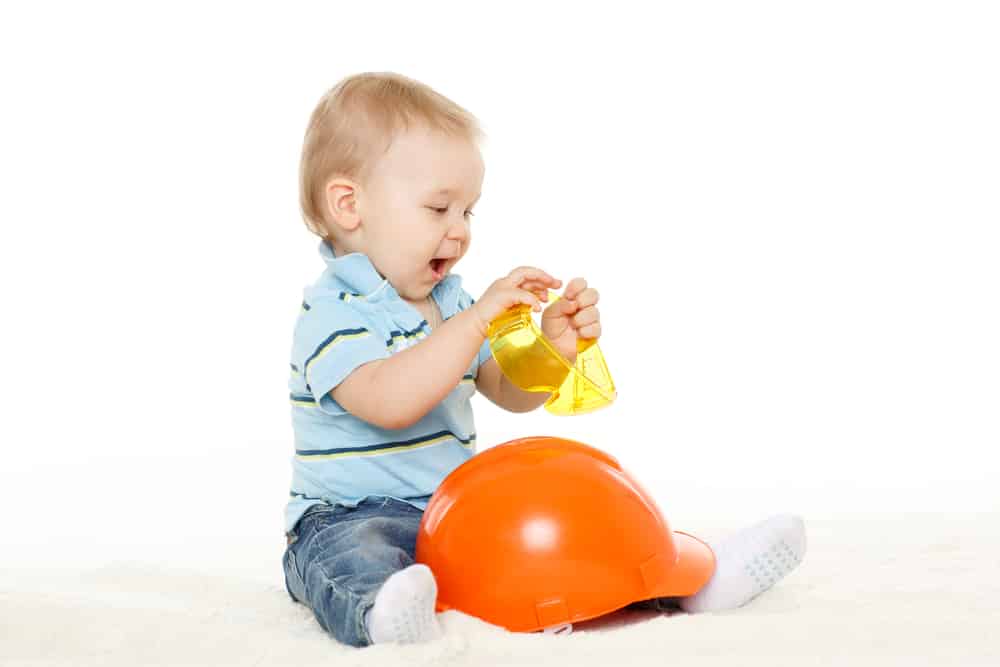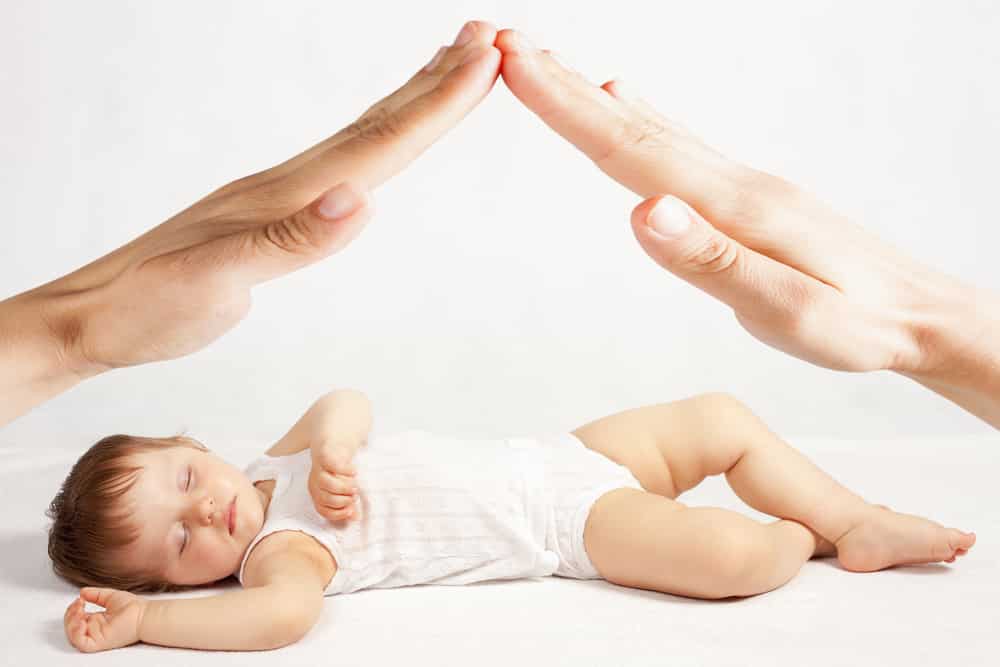
Baby Safety Month Highlighting Safety Issues Amid COVID-19
Birth Injury Guide is proud to support Baby Safety Month during the month of September. Baby Safety Month is a time of awareness sponsored by the Juvenile Products Manufacturers Association (JPMA). The goal of Baby Safety Month is to educate parents and caregivers on safe selection and use of products made for infants and children. Now, amid the COVID-19 pandemic, Baby Safety Month is also highlighting the importance of safety in everyday life.
There is no question that the COVID-19 pandemic has challenged the way that families approach everyday life. Many families are adjusting to a new sort of normal as schools reopen with very different schedules and guidelines. Many parents are having to find a balance between their work life and being a full-time parent and teacher.
Parents with a new baby at home may feel especially anxious as they work to keep their newborn safe and healthy. The coronavirus risk to infants is more significant than officials originally thought. This adds a new layer of concern for new parents already adjusting to life with a newborn.
Baby Safety Month Highlights Safety Issues
While baby safety is important every month of the year, September offers a chance for sponsors and advocates to raise awareness and offer advice on how to protect infants and children, especially during the pandemic. Some advice from the U.S. Product Safety Commission (CPSC) and others includes:
Check for Recalls
The CPSC recommends parents check their infant and children’s products for safety recalls. Recalls are not always widely publicized, which means you could have a safety issue in your home and not even know it. It is especially important for new parents to check for recalls on infants products. Per the CPSC,
“As a new parent, check for recall products in your home. Recall products can injure your child, they can injure you. You don’t want that to happen.”
Avoid Secondhand Items
New parents are often surprised at how expensive it is to outfit a home for a new baby. Some families turn to secondhand items to reduce the cost. Sometimes, used items are suitable, but there are certain products that you just shouldn’t take chances on. The CPSC recommends avoiding secondhand cribs and car seats in particular.
Install Your Car Seat Correctly
A correctly-installed car seat reduces the risk of child death in an auto accident by 71 percent. Sadly, however, around 60 percent of car seats are not correctly installed or used. If you are unsure of how to correctly install your car seat, you can contact your local health department or fire department to see if they are offering car seat installation help. You can also find virtual car seat installation help here.
Set Up Your Crib Safely
One of the most important baby safety tips for new parents is properly setting up the crib and sleeping area. Doctors and safety experts recommend the following:
- When assembling a crib, make sure to follow manufacturer instructions.
- Submit the product safety card for cribs and infant items to stay up-to-date on recalls or safety issues.
- Choose a firm mattress.
- Use a fitted sheet only.
- Remove toys, pillows, bumper pads and blankets.
- Place infants on their backs to sleep until they are at least one year old.
- Dress infants in a onesie or wearable blanket for sleep.
- Avoid loose blankets or pajamas.
- Place the crib in your bedroom within easy reach.
Providing a safe sleep environment is important to keep your child safe and healthy. According to Safe Kids Worldwide:
- Unintentional suffocation is the number one cause of death among children under one year of age.
- Each year, around 3,500 infants die from sleep-related deaths.
- Sleep-related deaths are caused by entrapment, suffocation, strangulation and Sudden Infant Death Syndrome (SIDS).
Beware of Bath Time
Bath time is a fun time for parents and small children. Unfortunately, it can also be incredibly dangerous. It only takes seconds for an infant or small child to drown. At a time when parents are balancing many activities and responsibilities – many from the convenience of a smart phone – it is more important than ever to put away distractions during bath time. Don’t answer the phone, respond to emails or text while your child is in the bath. Keep your attention completely on them.
Be Aware of What is in Reach
When juggling numerous tasks, it is easy to set something down and walk away without thinking twice about it. Unfortunately, nothing is off limits to infants and children who are exploring their environment. This is especially true during the stages of learning to walk and climb. Even something as seemingly harmless as a bag of candy or a bottle of water can be dangerous in the hands of a toddler.
Be aware of what is in reach and make sure that you and other family members are not leaving dangerous items within reach of toddlers or small children.
Watch Out for Climbing
If your toddler or child is starting to climb, watch out for possible dangers. One common example is a television perched on top of a dresser or chest of drawers. If the child climbs up and pushes or pulls on the dresser or television, it could fall over. The weight of the dresser and/or television could be enough to seriously injure, or even kill, a small child.
Keep Cleaning Supplies Locked Up
Since the start of the COVID-19 pandemic, families have been cleaning and disinfecting more than usual. They also have been cleaning more items than ever before – from surfaces to household items, even groceries. All this cleaning means that cleaning supplies may be more readily available in homes. It is imperative that parents keep cleaning supplies locked up and safely out of reach. Toddlers and small children may mistake cleaning supplies for something to eat or play with. The results can be disastrous, as cleaning supplies are highly toxic and can be fatal if ingested.
Install Smoke and Carbon Monoxide Alarms
With temperatures falling in many parts of the United States, heaters and fireplaces are once again in use. Before winter sets in is the perfect time to make sure you have working smoke and carbon monoxide alarms installed in your home. If you already have alarms, make sure they are working properly. Check the batteries (if applicable) and test the alarms to make sure they work. If you cannot hear the alarms in certain areas of your home, install additional alarms.

Keeping Your Baby Safe
At Birth Injury Guide, our goal is to help you protect your baby. Whether you have concerns about COVID-19, birth injuries or ongoing care for medical conditions – we offer resources that parents can trust. Baby Safety Month is a great time to highlight important safety issues, but we know that parents never stop searching for the best ways to keep their families safe.
To learn more, browse our website and blog, or visit our Facebook page. If you have legal questions, call us at 1-877-415-6603.

